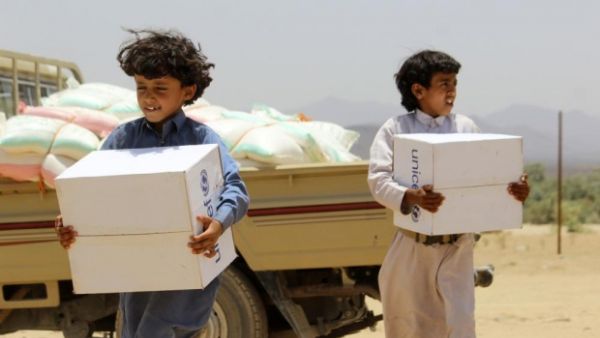Over 20 million people – 80 percent of Yemen’s population – are in need of humanitarian aid as the country suffers civil war and heavy airstrikes, UN children’s agency UNICEF said Thursday, according to Reuters.
Since late march, a Saudi-led coalition of Arab states has been conducting a bombing campaign in the impoverished country in an effort to halt the advance of the Shiite Houthi rebel movement, which seized the capital Sanaa in September, as well as other territories across Yemen.
The Arab alliance’s heavy use of airstrikes has meant that vital food and fuel supplies cannot easily reach the country, reported Reuters. Fuel shortages have made clean water a scarcity, as Yemen’s water pumps rely on gas power to operate.
“Fuel is not coming into the country, and since pumps are mechanized that means over 20 million people don’t have access to safe water,” said UNICEF Deputy Representative Jeremy Hopkins from Sanaa.
Hopkins added that around 9.3 million children in Yemen are in need of humanitarian assistance in the conflict, which has damaged schools, caused severe malnutrition, and spurred recruitment of child soldiers. A recent UN estimate said around 30 percent of fighters in Yemen are minors.
Illness is on the rise as garbage collection and other basic municipal services go unfulfilled in the country, where UNICEF estimated 10 million people needed humanitarian aid even before the war. A medical official told Reuters that dozens in the southern coastal city Aden have died recently from a surge in malaria and dengue fever.
The emotional stress on locals is immense, as many flee their homes due to violence, thirst, and hunger. “There’s no water, electricity, or food,” an Aden resident told Reuters. “Trash is piled up in the street and we’re afraid of disease. Aid agencies need to get to these areas by any means necessary.”







